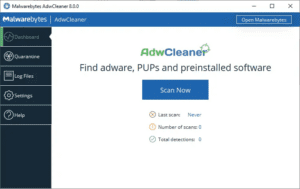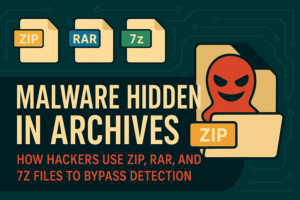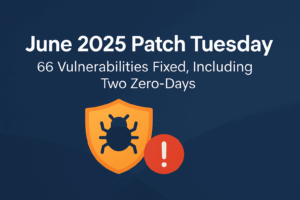Hey there! If you’re reading this, you’re probably on a quest to boost your cybersecurity knowledge — and I’m glad you’re here. Whether you’re someone who’s just dipping their toes into the world of cybersecurity or an experienced professional looking for reliable resources, having the right tools, communities, and guides can make all the difference.
The internet is packed with amazing places where you can learn, share, and grow your understanding of how to stay safe in this digital age. But with so many resources out there, it can be tough to know where to start. That’s why I’ve put together this guide — to help you discover some of the best cybersecurity communities, forums, malware-sharing platforms, and trusted sites out there.
Let’s dive in and find the right resources for you!
Cybersecurity Communities and Forums
When navigating the complex world of cybersecurity, having access to communities where experts, researchers, and enthusiasts share insights can be invaluable. These forums and platforms provide a wealth of knowledge, from the latest threats to best practices for staying safe online.
1. Reddit:
- r/cybersecurity: A general community for discussing cybersecurity topics, including current events, job advice, and news. With thousands of users, it’s an excellent place to stay updated and learn from experts.
- r/netsec: Focused on network security, this subreddit is full of advanced discussions on vulnerabilities, threat intelligence, and industry trends. Security professionals often share resources, research, and breaking news.
- r/Malware: If you’re specifically interested in malware, this subreddit is a great place to dive into analysis, ask questions, and learn from those working in malware research.
2. BleepingComputer:
BleepingComputer is a trusted name in the cybersecurity community. Its forums are well-known for providing user-friendly guides and support on issues such as virus removal, system optimization, and security tool recommendations. Users regularly report malware infections and get help from experts in analyzing suspicious files.
3. Wilders Security Forums:
A veteran in the cybersecurity forum space, Wilders Security has been around for years. This platform covers a range of topics, including antivirus software, firewalls, VPNs, and general privacy concerns. The discussions are in-depth, often attracting IT professionals and security experts who share their knowledge with the community.
4. Spiceworks Community:
Spiceworks is a large IT community where professionals exchange insights on a variety of tech topics, including cybersecurity. It’s a great platform for IT admins or professionals who want to learn how others are tackling security challenges in their organizations. Discussions range from malware mitigation techniques to network security best practices.
Malware Sharing Platforms (For Research Purposes)
If you’re a cybersecurity researcher, analyst, or just someone who wants to better understand how malware operates, malware sharing platforms can be a game-changer. These platforms provide access to malicious samples that you can study and analyze. However, a word of caution: These sites are strictly for research purposes, and downloading malware without proper security measures could put you at risk. Always ensure you’re using these resources responsibly and in a safe environment, like a virtual machine.
1. VirusTotal

VirusTotal is one of the most well-known malware analysis platforms out there. You can upload files or URLs to have them scanned by multiple antivirus engines. It’s a fantastic tool for quick checks, and its database is often used by researchers to identify new and emerging threats. Plus, you can see community insights on each file and monitor the spread of malware over time.
2. MalShare
MalShare is a community-driven malware repository providing free access to malware samples. Its goal is to offer security researchers easy access to the most up-to-date samples. While it’s less polished than some commercial tools, it’s a valuable resource for researchers who need fresh, real-world data.
3. Hybrid Analysis
Hybrid Analysis offers a sandboxed environment for malware analysis. It allows you to submit files, URLs, or suspicious executables and get a detailed report of their behavior. Whether you’re investigating a specific threat or conducting broader malware research, Hybrid Analysis offers deep insights into file behavior, network connections, and system modifications.
4. MalwareBazaar

Operated by abuse.ch, MalwareBazaar is a platform where cybersecurity professionals can upload and share malware samples. It focuses on threats like ransomware and other prominent malware families. Researchers can easily find and analyze samples, making it a valuable tool in fighting emerging threats.
Guides and Tutorials
When you’re trying to level up your cybersecurity skills, having access to quality guides and tutorials is essential. Whether you’re a beginner looking to understand the basics or a seasoned professional aiming to refine specific skills, the following resources offer comprehensive learning opportunities.
1. OWASP (Open Web Application Security Project)
OWASP is a global community focused on improving software security. Their guides, such as the OWASP Top Ten, provide essential knowledge about the most critical web application security risks. Whether you’re a developer or security professional, OWASP’s documentation and tools are invaluable for understanding and mitigating vulnerabilities in web applications.
2. Cybrary
Cybrary is a fantastic platform for anyone looking to learn cybersecurity from scratch or earn certifications. They offer a wide range of free courses that cover everything from ethical hacking to SOC analyst skills. Cybrary also provides labs and hands-on practice environments, making it easy to apply what you’ve learned in real-world scenarios.
3. SANS Reading Room
The SANS Reading Room is a treasure trove of whitepapers, guides, and research papers written by industry experts. The content covers a broad spectrum of topics, including incident response, penetration testing, digital forensics, and more. If you’re into in-depth technical material, this is an excellent place to dive into advanced topics.
4. Hacker101
Hacker101, provided by HackerOne, is a free resource for anyone interested in ethical hacking. It includes comprehensive tutorials that teach you how to find and exploit vulnerabilities. Plus, you can even earn points and participate in live hacking events where you can test your skills against real-world web applications.
Trusted Websites for News and Updates
Staying on top of the latest cybersecurity news is crucial, whether you’re a professional in the field or simply trying to stay informed. The following websites provide trustworthy and timely information on everything from data breaches to emerging threats, helping you stay ahead of the curve.
1. Krebs on Security
Brian Krebs is one of the most well-known investigative journalists in the cybersecurity world. His blog, Krebs on Security, is a go-to resource for breaking news on cybercrime, hacking, and data breaches. With in-depth reporting and a focus on critical incidents, this site is perfect for those who want detailed analyses of cybersecurity events as they unfold.
2. Threatpost

Threatpost delivers daily news on the latest cybersecurity developments, vulnerabilities, and threat research. The site covers topics like malware campaigns, phishing attacks, and data privacy, making it a great resource for keeping up with the fast-changing cybersecurity landscape. It’s geared toward both industry professionals and casual readers.
3. Dark Reading
Dark Reading is a must-visit site for anyone working in IT or cybersecurity. With its wide-ranging coverage of topics like network security, vulnerabilities, and risk management, it’s a reliable source for in-depth articles and analysis. Dark Reading also hosts webinars and virtual events, making it a great platform for continuous learning.
4. The Hacker News

The Hacker News is one of the most popular sources for up-to-date cybersecurity news. It covers a broad spectrum of topics, including cyber threats, data breaches, and security updates for major software and operating systems. Whether you’re a professional or just security-conscious, this site is great for staying informed about the latest trends and threats.
Cybersecurity Tools and Software
In the fight against cyber threats, having the right tools in your arsenal is essential. Whether you’re testing for vulnerabilities, analyzing network traffic, or performing penetration tests, the following tools can help you stay secure and proactive.
1. Nmap
Nmap (Network Mapper) is a powerful open-source tool used for network discovery and security auditing. It’s great for mapping out networks, discovering devices, and identifying open ports and services. Whether you’re conducting vulnerability scans or simply managing network infrastructure, Nmap is a must-have for any cybersecurity toolkit.
2. Wireshark
Wireshark is the go-to tool for network traffic analysis. It captures and inspects data packets flowing through your network, making it invaluable for identifying suspicious activity or diagnosing issues. With its ability to decode numerous protocols and highlight anomalies, Wireshark is perfect for anyone looking to dive deep into network traffic and troubleshoot security issues.
3. Metasploit
Metasploit is a popular penetration testing framework that allows security professionals to exploit vulnerabilities in systems and networks. It’s used for testing security defenses by simulating real-world attacks. Metasploit also has a vast repository of exploits and payloads, making it a versatile tool for penetration testers.
4. Shodan
Often referred to as the “search engine for hackers,” Shodan allows users to find devices connected to the internet. It indexes information on everything from webcams to industrial control systems, helping security professionals find vulnerable devices in the wild. It’s an essential tool for anyone interested in securing IoT devices or conducting network reconnaissance.
Online Malware Analysis and Threat Intelligence Platforms
Understanding the nature of threats is key to building strong defenses, and threat intelligence platforms can help you do just that. These services allow you to analyze malware and share threat data, providing valuable insights into how attacks are evolving.
1. AlienVault OTX (Open Threat Exchange)
AlienVault OTX is a free threat-sharing platform where security researchers and professionals contribute data on the latest threats. It provides real-time access to indicators of compromise (IoCs) and threat intelligence feeds, which are crucial for staying ahead of emerging threats. By participating in OTX, you can both contribute to and benefit from a global network of security experts.
2. MISP (Malware Information Sharing Platform)
MISP is an open-source threat intelligence platform that enables sharing, storing, and correlating malware analysis and threat data. It’s widely used by cybersecurity organizations to collaborate and enhance threat detection. The platform supports everything from incident response to the exchange of threat intelligence, making it an excellent resource for teams and individuals who need to stay informed about active cyber threats.
3. Cuckoo Sandbox
Cuckoo Sandbox is an open-source malware analysis system that allows users to submit suspicious files or URLs for automated analysis. It generates detailed reports on file behavior, including API calls, network activity, and file modifications. Cuckoo is widely used by researchers for dynamic analysis of malware and is an excellent tool for identifying and understanding new threats.
Let’s add a final section with some curated links, including GitHub repositories and awesome lists, that are treasure troves of cybersecurity resources:
Additional Useful Links and Resources
In the vast world of cybersecurity, curated collections of resources can help you find exactly what you need, whether it’s tools, learning materials, or research. Here are some more useful links that you should definitely check out:
1. GitHub Awesome Lists (Cybersecurity)
GitHub’s Awesome Lists are community-driven collections of curated resources. Here are a few focused on cybersecurity:
- Awesome Cybersecurity: A comprehensive list of cybersecurity tools, frameworks, blogs, and more. It’s regularly updated and covers a wide range of topics, from network security to incident response.
- Awesome Hacking: This list focuses on hacking tools and tutorials. It’s a great resource for ethical hackers and security researchers looking to improve their penetration testing skills.
- Awesome Malware Analysis: A curated list of tools and resources for malware analysis, including static and dynamic analysis tools, reversing, and unpacking techniques.
- Awesome Incident Response: A collection of open-source incident response tools and resources, from forensics tools to incident handling methodologies.
2. Google Project Zero
Google Project Zero is an initiative by Google dedicated to finding zero-day vulnerabilities. They publish detailed technical reports on vulnerabilities they discover, along with the research that goes into finding and fixing them. It’s an excellent resource for anyone interested in vulnerability research.
3. MITRE ATT&CK Framework
MITRE ATT&CK is a globally accessible knowledge base of adversary tactics and techniques. It’s used by cybersecurity professionals for threat detection, defense, and incident response. The framework provides a detailed breakdown of attacker behaviors and is essential for anyone working in cybersecurity.
4. NIST Cybersecurity Framework
The NIST Cybersecurity Framework is a set of guidelines and best practices to help organizations manage cybersecurity risks. It’s an invaluable resource for both small and large organizations looking to improve their security posture.
5. GitHub – Public APIs for Cybersecurity
The Public APIs for Cybersecurity GitHub repository provides a collection of publicly available APIs for threat intelligence, vulnerability scanning, and more. It’s a handy resource for developers and security professionals alike.
Cybersecurity is a constantly evolving field, and the key to staying secure is continuous learning and adaptation. By tapping into the communities, guides, tools, and platforms shared in this post, you’ll be better equipped to defend against current threats and stay ahead of new ones. The web is full of resources — all you need to do is dive in and start exploring!

Founder of ToolsLib, Designer, Web and Cybersecurity Expert.
Passionate about software development and crafting elegant, user-friendly designs.
Stay Updated with ToolsLib! 🚀
Join our community to receive the latest cybersecurity tips, software updates, and exclusive insights straight to your inbox!










